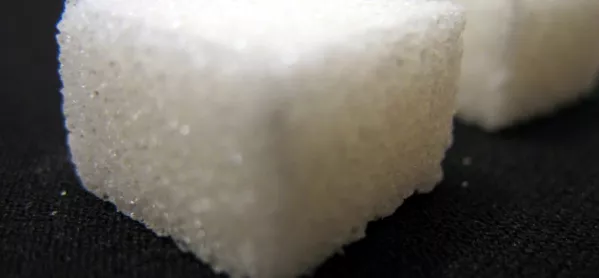The Department for Education has been forced to deny claims that it has “hijacked” money aimed at boosting pupils’ health to plug a school funding shortfall.
Education secretary Justine Greening last week announced that £315 million of “savings” had been found from “healthy pupils capital funding”.
This was part of the government’s plan to boost school spending by £1.3bn by 2020.
But when the Healthy Pupils Capital Programme was unveiled in February as a way of making pupils more active, the government announced £415 million would be available for 2018-19 to help pupils “get a healthy start”.
This would be funded via the soft drinks industry levy - also known as the “sugar tax”.
The £315m “saving” suggests that just £100m of the sugar tax revenue will now be spent as it was originally intended, with the remainder being used to prop up squeezed school budgets, according to the Local Government Association.
The DfE has denied this, confirming its commitment that every penny raised by the sugar tax will still be spent on improving pupils’ health. It said the £315m will come from money that has become available for reasons related to government accounting (see below).
However, questions remain over exactly how the sugar tax money will be spent and where this leaves “healthy pupils” funding.
Izzi Seccombe, chairman of the LGA’s Community Wellbeing Board, said: “It is vital that the soft drinks levy, which marked a significant step in the fight against obesity, is protected.
“Government needs to find genuinely new money to meets its new school funding commitments. It is perverse and counterproductive to simply shift this money around, particularly at the expense of children’s health.
“We were supportive of the previous government’s announcement of a soft drinks levy. But we now have grave concerns that the government is hijacking this money to plug funding shortages elsewhere. It calls into question the original purpose of the levy.”
A DfE spokesman denied the claims, and reaffirmed the department’s commitment to spend all the sugar tax revenue on improving pupils’ health.
The £315m was coming from money that the Treasury allocated to the department when the sugar tax was expected to raise £1.2bn - with the idea that it would later be recouped from the revenue raised by the levy.
However, fizzy drinks manufacturers then reduced the amount of sugar in their recipes, and the predicted revenue from the tax fell to £775m.
This meant there was £425m of extra funding that would not be reimbursed from the levy, out of which the £315m has been taken, the spokesman said.
He was unable to clarify how the remaining £110m was being spent or provide a full breakdown of how the sugar tax money was being allocated.
Last week, Ms Greening said she was clear that the government would meet its “commitment that every pound of England’s share of spending from the levy will continue to be invested in improving child health”.




